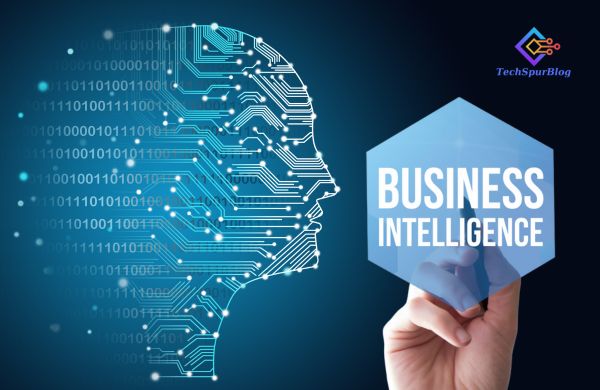
Companies must stay ahead of their competitors, by using cutting-edge technology. Artificial Intelligence revolutionizes how companies operate and succeed in today’s competitive environment. Integration of AI and BI helps businesses to elevate. AI enhances the capabilities of BI, making it more accurate, cutting-edge, and efficient.
AI enhances traditional BI tools by adding advanced analytics capabilities such as predictive modelling and prescriptive analytics. Predictive modeling helps firms foresee market dynamics, customer behavior, and operational demands by using historical data and AI algorithms to forecast future patterns. A leading business intelligence company can help you to enhance your traditional BI tools, adding analytics capabilities.
In this blog, we will explore various strategies to help businesses take advantage of AI to discover new growth opportunities, enhance operational efficiency, and outperform the competition.
Tips to Leverage AI for Business Intelligence
There are various ways to Leverage AI for Business Intelligence and Analytics. Let’s examine a few ways for using AI to improve business intelligence.
Implement New Strategy
AI models learn from past experiences, adapting to real-world changes. Integration of BI with AI enables businesses to gain personalized insights. Developing AI models that can self-adapt in production or building less inflexible AI engineering processes are made possible by adaptive AI systems. Systems become more adaptable and agile as a result.
Businesses can customize generalized findings and adjust to shifting surroundings and limited training data because of this flexibility.
Sync Up Work Throughout the Company
Individual departments enhance their integration with AI in business intelligence. It enhances communication and collaboration across organizations, accurately handling its tasks and initiatives.
Simplify Complex Tasks
AI allows automated voice responses, converting texts into voice. It is essential to outline a sustainable business process redesign to optimize the use of AI in business intelligence (BI). It creates a balanced workflow, delivering optimal outcomes to divide the task between humans and machines.
Artificial Intelligence (AI) augments human capabilities by expediting traditionally complex business intelligence operations, such as customer data collection, sales processes, and marketing campaigns.
Also Read: How BI and Data Visualization Can Help Your Business
Compression of Model
While decreasing the size of AI models and preserving their correctness, model compression techniques offer faster, more effective, and more accurate insights. The capacity of model compression to lower the memory footprint of models is another important benefit.
This is especially helpful in settings with little access to technology. Compressed model enhances the accuracy of models, reducing overfitting.
Predictive Analysis
AI-powered predictive analytics analyze larger and more complex data, offering companies with real-time insights. AI analytics allowed shipping companies to optimize their routes and delivery schedules. Organizations use AI-powered analytics to detect and prevent fraud through real-time transactional data analysis.
Predictive analytics helps businesses safeguard assets and consumers, improve fraud detection, and safely run their business. Consequently, organizations can develop personalized retention strategies much more efficiently.
Effectively Manage Department Initiatives
AI in business intelligence can assist organizations in effectively managing department initiatives by reducing operational time and costs and eliminating human errors. As a result, individuals and department leads can promptly analyze data, make decisions, and take action without waiting days or weeks for a report.
Streamline Work Processes
AI in business intelligence can improve your operations by streamlining workflows. Additionally, AI-powered data analytics can unearth previously inaccessible insights by enabling users to gather a wider range of data. With AI streamlining workflows, companies can enhance their capabilities beyond essential business elements.
It offers access to cutting-edge AI features that provide valuable insights for implementing effective strategies, particularly in marketing. This integration allows for smarter data use and more targeted campaigns.
Enhanced BI also leads to improved employer-employee relationships, as employees are engaged in more productive tasks. This could lead to higher employee retention rates and an overall boost in morale when it comes to important business tasks like reporting and project completion.
Also Read: Key Advantages & Limitations Of Employing Data Visualization
Wrapping Up
Effective integration of AI into BI needs a strategic approach. AI tools ensure organizations build trust and prioritize data quality and privacy. Adopting AI for business intelligence is challenging without the right tools in place. Companies struggle to use the necessary data without proper data management.
It leads to poor results or even failure. There is a plethora of Business Intelligence Services available in the market. Select the best BI solution to integrate AI into BI tools.

Leave a Reply